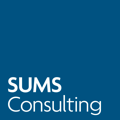
| Date | Author |
|---|---|
| 6th March 2023 | Emma Ogden, SUMS Consultant |
Read more from SUMS HR experts
(5-minute read)
In part two of three thought pieces, SUMS Consultant Emma Ogden reflects on the CUPA-HR Conference in San Diego, focusing on performance, development and reward practices.
Back in October 2022 I was fortunate enough to attend the CUPA-HR Conference in San Diego. CUPA-HR, the US-equivalent of UHR, had a huge attendance of delegates representing the entirety of the United States. Their two-day conference brought fantastic opportunities to see the differences and similarities between US and UK institutions and how we can learn from some innovative practices which are being championed on the other side of the pond.
In the second of three thought pieces, I am focusing on Performance, Development, and Reward practices. This is based on five case studies shared by Anne Arundel Community College, Arizona State, the University of Tennessee Knoxville, Gonzaga University, and the University of St. Thomas.
Institutions in the UK HE Sector are recommended to consider these examples of innovation and consider how they might apply within the UK.
SUMS is a membership-based higher education consultancy, a registered charity and not-for-profit organisation that provides expert consulting to universities across all professional service areas.
Updating the Employee Value Proposition for higher education – University of St. Thomas
The University of St. Thomas, in collaboration with Grant Thornton have been reviewing their Employee Value Proposition (EVP) and considering how to create personalised total rewards for their employees.
Recognising the war for talent and how to retain staff, a Grant Thornton Survey conducted in March 2022 found that good benefits were the top reason that higher education staff stay at their institution. However, benefits tend to not be tailored to individual needs and are often very similar to competitor or other institutions, making it a challenge to think about how to leverage them for competitive advantage.
In the US, it is estimated that between $3-5,000 is wasted on spend per employee on benefits they do not want. But, there is a shift to using data and analytics to understand perceived value and repurposing the same spend for leverage. There is a focus on ensuring benefits:
- Appeal to different generations (e.g., broader benefits around for ‘core’, such as time off and retirement, wellness and financial, workplace support, such as flexibility and growth and community such as professional development and CSR initiatives).
- Are analysed to understand which offer the highest rate of satisfaction and how important they are to different members of staff.
- Have an ‘expansive focus’ (e.g., understanding where competitors cannot replicate through elements such as leadership, purpose, culture, work environment, role).
Understanding different institutional-wide, personalised, financial, and non-financial benefits provides an ability to create at tailored approach, while maximising cost management and return on investment. For instance, culture, training, work-life balance, and development opportunities can all be offered at relatively little cost, enabling consideration of personalised rewards through short and long-term incentives.
These elements are being encompassed within a total rewards strategy, which focuses on:
- External benchmarking with comparators and the local market.
- Financial considerations and affordability.
- Talent strategy and performance management.
- Tailored to institutional and individual realities (e.g., what do engagement surveys say really matter to staff). Understand the items which are crucial, nice to have and less important.
- Providing analytics, insights and reporting to understand whether preferences change.
Advertising these through a compelling marketing and brand narrative is an effective way to communicate the EVP about what is being offered to incentivise staff and candidates.
Moving from annual to quarterly performance conversations – Arizona State University
Arizona State University is a top ranked university with over 18,500 employees over 18 geographical locations. In 2021 following a review of their annual performance evaluations, they launched a new approach to their performance conversations.
The process is an employee-led quarterly conversation, aligned to the ‘EDGE’ (Engagement, Development, Growth and Empowerment) framework. The discussion is focused on achievements, challenges, needs and personal development.
The result of this has been:
- Shift from ‘evaluation’ to ‘conversation’.
- Employee-driven.
- Less requirement on forms, with a renewed focus on development.
- Timely, relevant, and more frequent discussions.
- Improved performance-related pay equity and differentiation.
- Improved engagement with performance discussions.
- More flexible / adaptive approach.
While there still needs to be a record of the conversation, this is as light touch as possible and submitted via their HRIS. Managers have been trained to coach and hold performance conversations, such as acknowledging biases.
Key lessons learned through the process include:
- Ensure there is leadership support.
- Manage as a project.
- Communicate the changes fully and comprehensively.
- Ensure everyone fully understands the programme.
- Integrate multiple technologies to enhance user experiences.
- Ensure resources are fully developed.
- Seek feedback and insight.
EXCELL performance coaching conversations – Anne Arundel Community College
This is an implementation case study. Anne Arundel Community College built on a well-grounded culture of coaching to develop a new process for performance evaluation. Their aim was to move away from inconsistent performance ratings, a lack of focus on meaningful conversations to a focus on more frequent feedback about performance.
Using their accredited in-house coaching programme, 165 Faculty and Professional Services staff members have been trained as qualified coaches, which is the foundation for enabling performance coaching conversations. The programme is based on the EXCELL framework:
- Express appreciation (for strengths, projects, and work)
- Constructive coaching (against a specific behaviour, project, or goal)
- Environment and values discussion
- Learning and growth discussion
- Listen to the employee to develop goals together.
As a result of the initial pilot, they have revised their approach with new starters receiving coaching conversations as part of their probationary process, keeping objectives as an option, and shifting conversations to a semi-annual basis. There is also less focus on ratings, with an assessment on whether an employee is meeting or not meeting expectations. The results of this have been higher rates of engagement, a view that development is being discussed and individuals are being cared about.
Key lessons learned through the process include:
- Ensure there is leadership buy-in and advocacy.
- Pilot the programme for constituent or more engaged groups.
- Ensure adequate training and support on the process (e.g., the system and forms) as well as how to become performance coaches.
- Seek feedback and data insight (the pilot found that 88% of employees preferred the EXCELL process with more frequent conversations).
Mentoring matters: developing a research-based programme for higher education staff – Gonzaga University
The University of Gonzaga recognised the strategic value that mentoring could bring through career development, improving minority representation and retention strategies. In response to these, the University piloted a grass-roots inclusive and informal nine-month mentoring programme within one of their departments.
The process commenced with some developed principles for the programme:
- It was for Professional Services staff.
- It was offered as a nine-month programme.
- It was for the mentor and mentee to define the relationship.
- Alignment for mentors as a leadership development offer.
Key lessons learned through the process include:
- Ensure data gathering to understand the need, desire, and readiness for mentoring.
- Getting appropriate buy in through word of mouth, feedback, participation, leadership advocates and champions. They also sought input to the design.
- Outreach through marketing strategies and a communication plan.
- Ensure there are clear outcomes (those who have engaged in the mentoring programme have all secured promotions).
Following this first-year pilot, Gonzaga are now planning on expanding the programme to Faculty staff. They are also looking at those who have been mentees to become mentors.
Professional fellows power: strategies for creating a Staff Fellow Programme – The University of Tennessee, Knoxville
The University of Tennessee, Knoxville, aims to improve their EVP through enhanced attraction, retention and development of staff and have recently implemented two fellow programmes:
- Staff Diversity Fellow – based on specific project (e.g., a diversity, engagement and inclusivity measurement and inclusive search training) with a pre-determined assignment length, job description and hiring criteria. Candidates are paid and seconded into the project.
- Professional Fellow – a semester-long, unpaid assignment where employees are matched with a host department to support with activities and projects on-demand. The aim is to provide professional and career development They are released from their day-to-day role for up to 6 hours per week.
Key lessons learned through the process include:
- Being mindful of types of projects (e.g., being hosted in HR would require having access to confidential information).
- Getting buy-in from both host and ‘releasing’ departments to ensure the employee could be effectively released. This was managed through effective piloting.
- Seeking Union agreement.
- Ensuring senior leadership support to advocate the programme.
- Budget management and whether the programme was incentivised through pay or not.
- Ensuring employees engaging on the professional fellow programme are effectively supported.
Why performance, development and reward matter
Each of the case studies highlight the importance of coupling external market research with internal surveys to cultivate programmes which best support a positive employee experience. With the UK facing cost-of-living challenges, institutions are going to have to adapt their thinking to more flexible and tailored approaches to engage staff and ensure retention, particularly if pay expectations cannot be matched.
SUMS recommendations
To improve the EVP, help manage and align expectations between the employees and the university, we suggest you:
- Ensure People Strategies are current, relevant, and reflective of internal and external influences.
- Define what the success measures need to be or what actually wants to be achieved; what is the ‘problem’ being sought?
- Ensure leadership commitment and buy in; they need to be advocating and supporting beneficial change.
- Get insight and data to support changes, both externally and internally to benchmark successes and benefits realised.
- Understand the blockers and enablers to effectiveness, such as leadership appetite or financial constraints.
- Encourage employee voice and empower them to own and advocate for their needs, particularly in terms of reward and benefits.
With expertise covering almost all areas involved in Human Resources, policy and employment law, the team at SUMS Consulting would be happy to help in supporting conversations further.
If you wish to discuss further or need any further information, please contact Emma on e.l.ogden@reading.ac.uk








